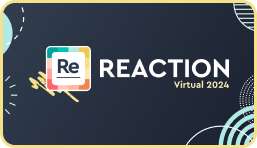An estimated 61.5 million Americans experience mental illness each year. That’s one in every four adults—but only half that number seek treatment.
Despite the growing need for psychological care, the resources available are not growing with the problem. Even in 2018, nearly 56% of American adults with a mental illness do not receive treatment or even have access to treatment. Many states have up to six times the individuals in need to only one mental health professional. That number includes counselors, psychiatrists, psychologists, psychiatric nurses, and social workers combined.
Download the full case study
How the University of Houston is Making an Impact
Dr. Sarah Mire, a licensed psychologist in Texas, is a great example of a psych professional making positive changes. Mire worked as a practitioner for several years before earning her PhD in school psychology from the University of Houston (UH). She’s worked in residential treatment, community mental health, public school settings, and specialized clinic settings. But she felt like something was missing in her work.
“I love patient care,” said Dr. Mire, “and I find it to be incredibly rewarding. But one thing that struck me was the limited effect. As practitioners, we work with only a limited number of families at one time. As a trainer, I’m sharing my experiences and practical knowledge with the next generation of professionals to help them better serve their patients. This gives me the opportunity to help far more people in the long run.”
To that end, Mire knew she wanted a faculty position, not just to teach but to research issues that impact the entire psychology field. She returned to her alma mater and became an assistant professor in the University of Houston’s Department of Psychological Health and Learning Sciences. The department’s main mission is to advance scientific knowledge, effect real-world change, maximize psychology student potential for global competitiveness, and enhance the quality and length of life in all segments of society.
For Mire, this kind of global reach is exactly what she wants to be part of: “We are preparing future researchers and future practitioners to make a difference with their degree. Everybody in the psychology programs is training to become a licensed psychologist who will diagnose and treat mental health, behavioral health, and developmental disabilities.”
Every graduate leaves UH with a challenge to make the field and their specific area of study better than when they arrived. Whether psychology students are in research or practice, their goal is to go make a difference.
What Does Success Look Like?
Dr. Mire’s psychology students complete various milestones in the program and complete a dissertation. Then it’s time for the Association of Psychology Postdoctoral and Internship Centers (APPIC) match.
Says Mire, “It’s a competitive process where psychology students vie for a limited number of accredited internship spots all over the country and in many different settings. So one of the ways we measure success is our Match rate.”
Once students have registered with APPIC, they complete a series of applications and identify which out of the thousands of sites they’d like to go to and complete their pre-doctoral internship, very much like a residency.
“For the past five years we’ve had a 100% match rate in our Counseling and School Psychology Ph.D. programs,” said Mire. “We’re really happy about that.”
All the faculty in the department recognize that to keep an excellent Match rate, they need to find effective ways to address challenges the department faces in training future psychologists.
As Mire describes it, “A big challenge is providing sufficient and timely feedback from a supervisory perspective. Especially as faculty in the classroom, we don’t get a chance to see many of our psychology students’ skills the way field-based supervisors might. We train them for sure, but we don’t get much opportunity to see how they’re doing because their clinical rotations are outside of the classroom. One of the major services psychologists provide is psychological testing, which is one of the students’ training experiences in my class. When they go out on site, they’re expected to be proficient in that from day one.”
To help her psychology students hit the ground running in their early careers, Mire needed a way to assess whether students were understanding the material or not. “Reading textbooks isn’t necessarily enough. Even having them practice in class often doesn’t cut it. So one of the big challenges in this type of training is assessing their skills in as real world a way as possible.”
Mire needed to know if psychology students are learning what they need to become licensed psychologists.
Searching for a New Tool
Mire was on the lookout for methods that would give her students the practice they needed. One tool proved to be particularly effective: video.
Dr. Mire does many different types of psychology training, but the first time she ever used video was for teaching IQ testing. Standardized, norm-referenced IQ testing is the gold-standard way of measuring cognitive abilities in persons of all ages, and it’s often a component of psychological testing. The standardization of these tests (e.g., the Wechsler Adult Intelligence Scales-Fourth Edition, Wechsler Intelligence Scales for Children-Fifth Edition, and the Woodcock-Johnson-IV: Tests of Cognitive Ability, Stanford-Binet Intelligence Scales-Fifth Edition) requires students to learn—and adhere to—a very set way of administering, scoring, and interpreting the tests.
“For the test to measure what it’s designed to measure, students have to do it in a very prescribed way. If they deviate from that, we can’t have any confidence in the scores they get from these cognitive instruments. Adherence to standardization is critical.”
To complete an IQ test, each student must conduct an in-person administration with child or adult volunteers. Over the years, Mire discovered the only way to give her psychology students feedback was to film these administrations and review the recording to see how they did.
“At first they were using a video camera and a tripod. They would record it, put it on a jump drive, and turn in the file with all their other materials for testing. Before we could even watch their videos, we often had to download whatever video software they used. It was a huge hassle, and some students even lost their jump drives partway through the semester or had storage issues. We had so many problems to resolve.”
Even once Mire watched the videos, leaving feedback was still problematic. She used an Excel spreadsheet with her rubric and had to manually pause the videos to take notes. Without any time-stamping, her comments were difficult for students to review effectively.
Mire needed a better way to give video feedback to her students.
Finding GoReact
Mire was browsing a forum when she saw a fellow professional mention a solution she’d never heard of before: GoReact. It seemed to tackle just about every challenge Mire was having. “I thought GoReact could really be a game-changer,” said Mire. “And it’s worked out fantastic.”
She immediately introduced the software in her IQ training class. After training the psychology students to use GoReact, Mire sent them out to find volunteer patients and film the IQ testing administration with the new software. Students could now use their own smartphones and laptops to get the job done.
“Once they record a video, they turn it in through GoReact and get feedback from me on the platform. There are 32 critical skills I’m looking for, and I love the fact that I can build my own rubric to GoReact. I can drop markers in to flag skills that should be happening at certain spots in their videos too. They record at least six to nine administrations during the semester, and they get detailed feedback that’s actually easy to follow!”
Gathering and commenting on her psychology students’ videos became drastically easier overnight. Mire knew right away that she’s not the only instructor who needs this. She raved about the platform so much that one of her faculty colleagues started using it in their own testing training courses the following semester.
Mire also discovered how easy the software was to use. “I am not technically savvy at all so if I can work this, anybody can. It was very user friendly, and that’s really cut down on the technical problems that have interfered with the quality of the feedback prior to this year.”
Students Improving at Lightning Speed
“At the beginning of this,” said Mire, “the students were a little grumbly about learning something different, because there’s already so many other things they’re learning. But once they got their login, I didn’t hear any kind of complaining.”
Her psychology students are now improving at remarkable rates. Before GoReact, Dr. Mire had no evidence whatsoever that students were reviewing and absorbing her feedback from the Excel spreadsheet. “This is the fifth time I’ve taught this class and the first time I’ve taught it with GoReact. This is the first year I’ve seen students improving at specific spots in their administration where I left feedback. The next time the student gets to that point in the video, they don’t do the same thing, which tells me they’re actually watching these videos.”
Mire also tracks her students’ error rates throughout the course of the semester. “I’ve seen greater improvement in a much faster time this year, and I attribute that to students watching themselves on GoReact. I’ve tracked the numbers in Excel for years, so it’s easy to compare one year to another.”
The software made self-feedback not only possible but easy for the students. “GoReact is a really effective way for students to watch and grade their own videos. Before now, this process was really cumbersome, and the students really disliked it. Now they’re completely fine because GoReact is super easy to use. They start typing. The video pauses. It drops a time stamp—it’s been fantastic. It’s facilitated their learning in a way that wasn’t previously possible.”
One particular student in Mire’s class commented on how shocking it was to see herself on camera. “I didn’t even know that I did that,” she said. “I watched myself, and I didn’t know I made facial expressions like that when I was talking to somebody.” Mire was thrilled to hear about the eye-opening experience, and not just because this student made such noticeable and quick changes.
“That student’s comment really struck me,” Dr. Mire said. “Watching ourselves on video can be kind of painful. But when we’re training people to do therapy, video can help them change their behaviors and become more effective therapists. We could use this platform in a lot more expanded areas than just for testing training, which I hadn’t considered before.”
Added Benefits
According to Mire, student improvement isn’t the only way the software has changed her classes . . .
Saved Time
Mire has cut down exponentially on the time she spends grading. The videos from her psychology students are on average three hours a piece. Providing feedback manually took about one and half times that, but GoReact streamlines the process and allows her to watch the videos at a faster speed. Mire noticed from day one how much easier this process was than her old method of using jump drives.
Improved Accuracy
The software has also improved accuracy for Mire’s teaching assistants. “If I’m off-campus on Sunday night and my TA emails and says, ‘Hey, I don’t know if this is an error or not,’ I can log in and look at the same thing she’s looking at. Then we talk about it. That has increased accuracy and also contributed to the steeper decline in error rates.”
Better Feedback
The software’s overall simplicity and great customer service has given Mire the energy and freedom to focus more on her students’ needs. “Spending less time with the technical aspects leaves me more time to comment on things that are much more meaningful to the student. Even things that may not be on the rubric.”
Future Plans
After her first semester of using GoReact, Dr. Mire was convinced this was a solution for the long term. And not just for herself.
“I’ve had several conversations about GoReact with my fellow professors,” said Mire. “We have a number of new training initiatives starting at the university, not just those within our department. This software has been such a valuable tool for us. I’ll be recommending it to others whether they want to hear about it or not.”
Mire has already spoken with both her department and her colleagues who could benefit from this tool. “I get excited because this will make your life 100 percent easier. One of my colleagues will be using it for fall semester. She wasn’t getting much rest because the grading had become so time-consuming, and I said, ‘You need this.’ GoReact has made my life easier, and it’s made students’ experience in this class much more effective.”
Mire is convinced her psychology students will be much more prepared thanks to this platform. They’ll be prepared to succeed in their careers and prepared to expand the psychology healthcare industry to support clients in need. In the end, that is going to make a lasting difference for mental health nationwide: skilled professionals armed with the knowledge and determination to help people.
Mire added, “This is something that everyone should be using because it’s an awesome product. GoReact is incredibly useful and exactly what this field needs.”





